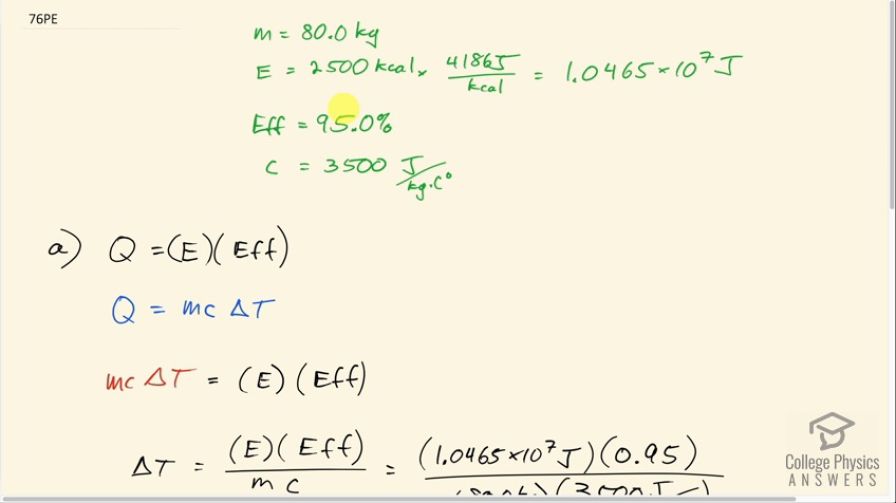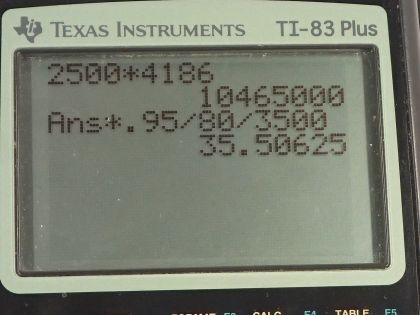Question
(a) What is the temperature increase of an 80.0 kg person who consumes 2500 kcal of food in one day with 95.0% of the energy transferred as heat to the body? (b) What is unreasonable about this result? (c) Which premise or assumption is responsible?
Final Answer
- Body temperature is highly regulated within a narrow range about . A temperature increase greater than is life threatening.
- It's unreasonable to presume that 95% of heat generated from food will be retained by the body. The body has mechanisms, such as sweating, to dissipate heat.
Solution video
OpenStax College Physics, Chapter 14, Problem 76 (Problems & Exercises)

vote with a rating of
votes with an average rating of
.
Calculator Screenshots
Video Transcript
This is College Physics Answers with Shaun Dychko. This question supposes that an 80.0 kilogram person consumes 2500 kilocalories of food energy and 95 percent of that energy is retained by the body as heat. So we convert the energy into joules by multiplying by 4186 joules per kilocalorie and we need to know the specific heat of the body which is 3500 joules per kilogram per Celsius degree. So the heat energy absorbed by the body then is going to be the total energy consumed multiplied by the efficiency by which it absorbs that heat energy— 95 percent of it will be absorbed as heat— and that heat energy will also be the mass of the body times its specific heat times its change in temperature. So we can equate these two things and say that mcΔT equals energy times efficiency. Let's divide both sides by mc to solve for the change in temperature. So the change in temperature is energy times efficiency divided by mass times specific heat. So that's 1.0465 times 10 to the 7 joules times 0.95 divided by 80.0 kilograms times 3500 joules per kilogram per Celsius degree and that's a temperature change of 35.5 Celsius degree— that temperature change is huge. The body temperature is highly regulated around 37.0 degrees Celsius and a temperature change of more than 3.0 Celsius degrees is life-threatening. So a fever above 40.0 degrees Celsius needs medical assistance and this is 35 Celsius degrees above so highly impossible... totally impossible! And it's unreasonable to think that 95 percent of the heat generated from food will be retained by the body because the body has really good mechanism such as sweating to dissipate heat.
